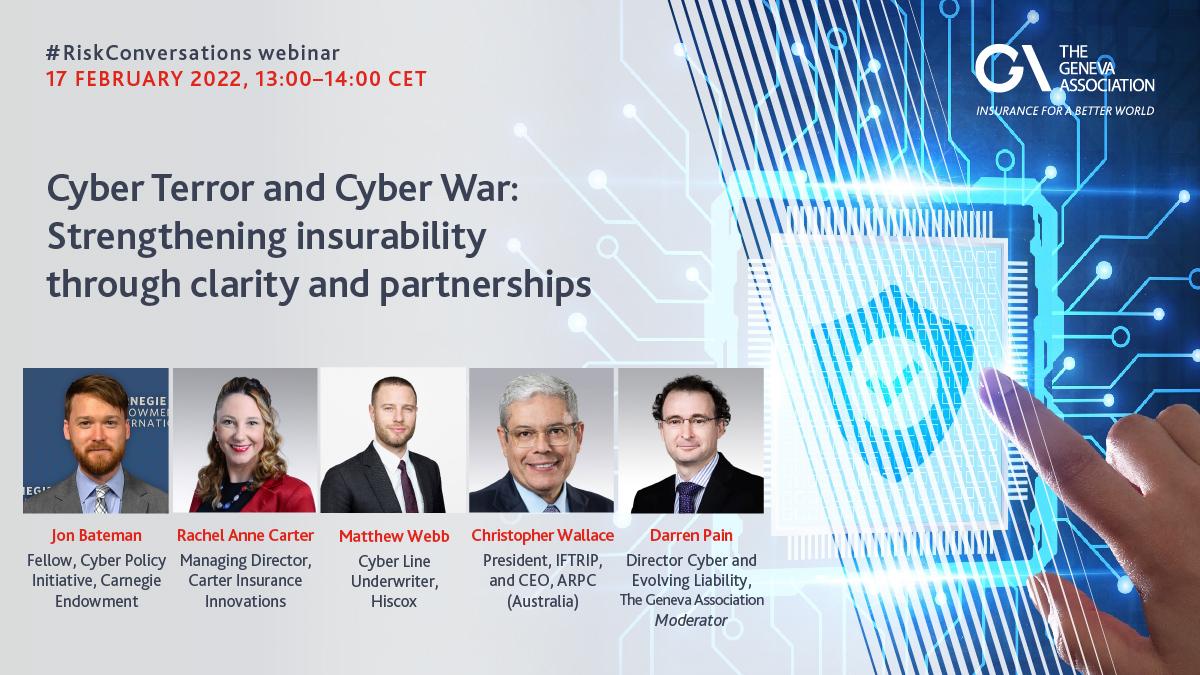The cyber landscape is evolving rapidly, with digitalisation expanding the range of threats and vulnerabilities. This process is amplified by shifts in working and business practices brought on by COVID-19, some of which are likely to persist. Ransomware and supply chain attacks in particular have become more prolific since the onset of the pandemic and with them wider recognition of the potential for large-scale economic disruption from malicious cyber incidents.
A series of three reports by The Geneva Association and the International Forum of Terrorism Risk (Re)Insurance Pools (IFTRIP) examined the insurability of Hostile Cyber Activity (HCA), those malicious incidents beyond cyber terrorism but not involving cyber warfare. These studies aim to bring clarity to insurance contract language used to describe and attribute cyberattacks and lay out the features of feasible public-private insurance solutions to cover potential losses.
This Risk Conversations webinar gathered leading experts to discuss the themes highlighted across the three reports and how stakeholders can and should respond to the urgent need for greater societal protection from mounting extreme HCA risks.
Speakers
- Jon Bateman, Fellow, Cyber Policy Initiative, Carnegie Endowment
- Rachel Anne Carter, Managing Director, Carter Insurance Innovations
- Christopher Wallace, President, IFTRIP, and CEO, ARPC (Australia)
- Matthew Webb, Cyber Line Underwriter, Hiscox
- Darren Pain, Director Cyber and Evolving Liability, The Geneva Association (moderator)







